JCPOA revival blame game
The eighth round of the Vienna Talks, which began in April, ought to have been concluded by now, according to whispers heard from various directions. If said rumors are true, we may see a Vienna deal ready for the signing in early March 2022.
The prospect of a finalized deal is already painting a pretty picture of an Iranian foreign policy victory.
But would that make a difference to the image of Iran in Western media?
Western parties to the JCPOA, and now to the JCPOA-revival talks, have waged a media war on Iran, depicting Tehran as carrying all blame for the talks dragging on and maybe failing.
And if the talks succeed, it’ll be because Iran made concessions on its demands. At least that’s how western and western-backed media are sounding the news at large. But what’s the reality on the ground? The answer may lie in the February deadline.
The United States and its partners in the negotiations realize that if they don’t come to terms with Iran soon, the JCPOA or nuclear deal will be rendered meaningless, as Iran has already succeeded in enriching uranium to 60 percent purity.
So it’s hard to see how Iran could be the loser in the Vienna talks.
I’m not saying we’re happy with how things are, but we’re not dissatisfied either. Our nuclear capabilities have increased after the US withdrawal from the JCPOA. The Israelis who egged on Trump to exit the JCPOA did us a favor, in fact. What the Islamic Republic of Iran has achieved in its nuclear program has been astonishing. If they don’t carry out their obligations, Iran will continue down this path.
Abbas Golrou, MP, National Security and Foreign Policy Committee
Enrichment to 60 percent purity is just days and weeks away from the 90 percent needed to make a bomb. Not that Iran wants a bomb, which, like all weapons of mass destruction, has been proscribed by religious edict.
It was happily enriching uranium to below 5 percent, But the US pulled out of the nuclear deal in 2018, a deal to which Iran remained committed for a year, until it started reversibly inching out of its nuclear commitments and started expanding its peaceful nuclear capabilities.
The deal was signed in 2015 between Iran and the P5+1, the US, the UK, France, Russia, China and Germany. The idea was that it would be a win-win deal, obligating Iran to limit its nuclear programme in return for nuclear related economic UN sanctions on Iran to be lifted.
However that did not come to pass with the UN sanctions being reinstituted as US sanctions.
What must the US do now to come to a good agreement with Iran, be it the JCPOA or an adapted Vienna deal?
The first point is that Americans left the JCPOA and have to pay the costs for their return.
Iran and six world powers negotiated the deal in 2015 and had the world’s eyes on them for a long while and then a participant in the deal leaves it with no consequences whatsoever.
Things have changed in the few years since the Americans withdrew from the deal. Iran has been facing tremendous pressures on its economy, trade, oil sales, and other areas [sic].
I believe the first thing to consider about the US return to (the) JCPOA is that it should make reparations for the damages.
Hassan Lasjerdi, Editor in Chief, Khabaronline.ir
“We do envision a straight return to the 2015 deal,” a senior US State Department official said. “There will be very little to surprise you if we succeed. … The requirements [of the original agreement] on Iran’s nuclear program and on our sanctions are quite clear.”
Western parties fear that ship will sail any day, which is why they have set the informal deadline for the end of February.
Iran is going to enrich more and more every day. They know that Iran may cross the borders that they don’t want Iran to, the borders that they have put all the red lines for. Another issue which is more important is sanctions which are losing effect. In practice, when you have prolonged sanctions on a country, it will comply with it slowly.
Mohammad Oliayi, Analyst, International Affairs
Western parties fear that Iran’s continuing expansion in the quantity and quality of the fissile material it is producing may lead to the construction of a nuclear weapon, which would thus make a return to the 2015 deal meaningless.
It would appear that Iran has greater leverage and has demonstrated its ability, within the terms of the JCPOA. But it doesn’t appear so in mainstream western media.
The purpose of this 8th round of talks was to examine what the United States should do to return to the JCPOA. But the West has been using media games to try to switch the culprit in the minds of readers and viewers.
Speaking about the deal, why are the negotiations taking so long? Why are they so intense and advancing this slowly? We’re not to blame.
Let me explain: one side to the talks is the content which is concerned with how much of the sanctions will be lifted, what obligations the sides have, and what mechanism to use to implement the obligations.
But the most important point is the guarantees for the deal’s implementation. Even if you have a great deal, but no mechanism to implement it, it practically means that all those rounds of talks have been for nothing.
We don’t see any initiative from the Europeans and the Western side over guarantees for the implementation of the obligations, especially in the economic aspect. They’re not willing to give us guarantees. They only make oral statements.
Abbas Golrou, MP, National Security and Foreign Policy Committee
Credible news has it that the progress of talks, although slow, is positive and the Western side is now on the track set by Iran.
But Western media is portraying Iran as a loser to both domestic and international public opinion. They say that the negotiation process has been slow due to of Iran’s maximal demands. In the same breath, however, they make it look like a tactic on Iran’s part when they say Iran is taking its time with the talks to advance its nuclear programme.
They then conclude: "These conditions have depleted the JCPOA of non-proliferation capacity and made the continuation of negotiations meaningless," and so they have to threaten it would seem, that: "If negotiations fail, other options are on the table …to contain Iran."
I believe what the Americans and Israelis are doing is somehow understandable. When you stick to your principles and state your demands firmly, the other side has to have a real argument why they can’t provide guarantees or lift sanctions, or they have to start playing games.
I believe Iran’s demands aren’t beyond the scope of the JCPOA. They’re not demands that Americans can’t meet. If they resort to threats and such escalatory rhetoric, it’s partly for PR purposes. They can’t, or don’t want to meet the demands, or are looking for more concessions from our side.
In such circumstances, they resort to issuing threats, including military action.
Hassan Lasjerdi, Editor in Chief, Khabaronline.ir
Conversely, when talks are progressing they’ll say that Iran tried to gain concessions by putting pressure on the West with maximum demands; demands so high that it had to retreat from them.
If the talks fail, or result in a stalemate, Iran will be the culprit, and if they succeed, it will be the loser.
In reality Iran has taken on a herculean task, having been under 40 years of international sanctions and 4 years of the toughest ever US sanctions.
But even with all that hurled at it, it has managed to accelerate its peaceful nuclear industry within the framework of safeguards and prevent the collapse of its economy.
They thought that after having the creeping sanctions, the sanctions that no country has ever experienced, Iran will come back to the negotiating table under the pressure of sanctions. And there they will impose whatever they want.
But everything in the period after Donald trump left the agreement showed that the US has not reached the goal they expected. When you fail in a policy, you need to change it then. And right now they know well that all officials in the US has failed [sic].
Mohammad Oliayi, Analyst, International Affairs
Regardless of whether there are going to be losers and who they might be, there has been “significant progress in the last week or two” of negotiations. But the small technical details, left for last, are apparently the toughest, especially as the West finds itself with a desperate shortage of time for dealing with them.
Iran has some red lines in coming to terms with the US, which might not help speed things up. But again it’s in keeping with the terms of the agreement and fair to all parties.
What are Iran’s red lines?
I think any new deal can be second or third JCPOA which is not accepted by Iran anymore.
They are going to include some other matters above the nuclear agreement and other than nuclear issues; like Iran’s defensive program or influence in the region.
These things are our red lines.
Mohammad Oliayi, Analyst, International Affairs
Iranian foreign minister, Amirabdollahian asserts: “…that if the Western side should seek to adopt a realistic view of what is going on at the negotiation table in Vienna, we would be able to reach the stage of a final agreement within a couple of hours.”
Americans have taken a tough stance and are looking for winning excessive concessions.
President Biden wants to get political gains from the talks, but he’s following in the footsteps of Donald Trump. He doesn’t want to change the policies or remove the sanctions.
What we mean by removing sanctions is quite clear. According to Article 7 of the Parliament’s bill to remove the sanctions, all bans, including those related to the JCPOA, nuclear program, human rights, terrorism, and others must be removed.
Imagine we clinch the deal based on the current draft agreement. The Americans must guarantee its implementation. But they refuse to do so. This is unacceptable.
Abbas Golrou, MP, National Security and Foreign Policy Committee
America has been pushing for direct talks with Iran in recent weeks, however, Iran expects some proof of good faith before conceding to this, for example, the lifting of some sanctions or releasing the $10 billion of this country’s frozen assets in foreign banks.
Looking at America’s foreign policy and media warfare however, one wonders why the evasive superpower of the far-west returned to the negotiating table in the first place, to talk on Iran’s expectations, as well.
One point to mention is the change of the ruling team in the US.
In my view, it appears that compared to the Republicans, the Democrats are more sensible and prefer diplomacy over war and conflict.
The second issue is Trump’s personality himself, which was key in different matters, including the JCPOA.
The third point, in my opinion, is that under Donald Trump, the world had reached its boiling point for tensions, both in our region and in relation to Iraq, Syria, and others and outside the region, including with North Korea.
The new team in Washington has arrived at the conclusion that it can’t continue with such tensions in the air. Therefore it has changed its approach.
Hassan Lasjerdi, Editor in Chief, Khabaronline.ir
Air-brushing Iran’s negotiating tactics as a failed attempt won’t white-wash America’s own foreign policy miscalculations. Sanctions so severe as to cut off a whole sector of another country’s national economy, has only backfired.
It can unwittingly cause states to double down on their former behavior. Iran Venezuela and Russia are perfect examples of this.
Between 2017 and 2020 Sanctions cut Iran's oil exports by more than 80 percent. This resulted in a cash shortfall of some $150 billion for Iran’s government.
Iran continued to increase its stockpile of enriched uranium, install faster centrifuges, and upgrade the degree of its enrichment.
I think after these years of resistance, Iran has resisted for a long time, so I think the negotiating team should not be pressed or affected by such media propaganda. Because they know full well that they are not in a situation to pressure Iran. They want this deal more than Iran.
Mohammad Oliayi, Analyst, International Affairs
The people of the world and the public opinion should know that the psychological warfare they’ve launched to paint Iran as the culprit is void and unacceptable.
We believe that the mechanism of accountability cited in international law which stipulates anyone who violates its obligations must be subject to it must be implemented against the Europeans and the US because they didn’t honor their commitments.
Abbas Golrou, MP, National Security and Foreign Policy Committee
Individually dealing with Iran is handful enough but the US has picked up more than one handful at a time. It imposed sanctions on Iran, Venezuela, North Korea and Russia and now it’s facing a united front of US foes, since the sanctioned countries have been uniting to find ways to break US pressure and hegemony.
You see, it’s the nature of the international system. When you’re under sanction by powerful countries, you’re automatically going to go into an alliance with similar nations.
Currently, Iran, Russia, and China are under western sanctions. You can add other countries including Syria to this circle. It’s only natural that, in order to break the chains of the international system and neutralize the pressures the US and powerful nations apply using the sanctions, the countries (would) come together and cooperate to stand up to the other side’s bullying.
So, I believe forming coalitions, co-operations, and collaborations among countries under sanctions, including Iran, Russia, and China, are natural responses to the United States’ excessive demands.
Hassan Lasjerdi, Editor in Chief, Khabaronline.ir
The United States imposed sanctions on Venezuela in 2019. Since then [that country’s] state shipping firm and some shipping agencies reportedly began ignoring protocols for checking tanker identity.
This was part of a smokescreen which Iran helped develop so that Venezuela’s oil exports would continue. In other words they carried out business under a fake identity. But they carried out business with and via Iranians and Russians.
Venezuela both traded with Iran and borrowed its tactics.
Iran and allies, this alliance of sanctioned countries, is but one example of US foreign policy not quite working.
Iran’s chief negotiator to the Vienna talks and delegates from other parties to the talks returned home for consultation with their respective governments on Wednesday 23 February, before reconvening with P4+1 and US representatives in Vienna.
This can be taken as a sign that Iran is taking the talks seriously despite all the US stunts.
To be fair, however, the US Secretary of State, Antony Blinken, signed several sanctions waivers related to the JCPOA on Friday 4th February.
Because as a senior US state dept official said: "Absent this sanctions waiver, detailed technical discussions with third parties regarding disposition of stockpiles and other activities of non-proliferation value cannot take place."
Over the few months of talks, the Iranian Parliament, especially the National Security Commission, has closely followed the talks. It has monitored the developments in numerous sessions with top officials from the Foreign Ministry, including the esteemed Minister, and top negotiator Mr. Bagheri Kani.
The Parliament has opinions regarding the matter. Today, the National Security Commission will hold a meeting with the Foreign Minister to discuss the draft agreement in detail and investigate to what extent it secures our national interests and the interests of the Islamic Republic of Iran.
The Constitution requires the Parliament to fulfill its oversight role in this issue.
Abbas Golrou, MP, National Security and Foreign Policy Committee
Russia has been negotiating with the West, especially the US, in the JCPOA revival talks, while it is involved in conflict with Ukraine and its energy sector faces tighter US and NATO restrictions.
Iran is also a major producer of both oil and gas, whose ability to export them is currently limited by sanctions. Lifting sanctions on Iran would allow Iran back into global markets, particularly in Europe, which has been depriving itself of Iranian oil and gas for years and is now also depriving itself of Russian oil and gas.
The Ukraine crisis has unsettled already-tight international energy markets, leading to increased prices in both Europe and the United States, thus, increased Iranian production could ease tensions in oil markets and lower prices “to the 80s”, which would also appease American businesses and consumers.
Robert McNally, a senior national security and economic adviser in the George W. Bush administration, estimates that Iranian oil production, which is currently at about 2.5 million barrels a day, could surge by a million barrels, on the proviso that sanctions are lifted, of course. “The Iranians actually have large quantities of oil stored in boats at sea, awaiting export”, he observed.
The Bank of America also told investors this week that an Iran deal could eventually lower the benchmark Brent price by $10 to $15 a barrel, “providing some inflation relief.”
Balancing the west’s media warfare playing field, bring us to another epic US miscalculation when the Trump administration, unilaterally and unlawfully, left the deal in 2018 and attempted to bring Iran’s oil exports down to zero, they could not have imagined, even in their wildest dreams, that Iran would today be selling even 2.5 million barrels of oil a day, even if at a third of its price.
Due to the Chinese demand for fuel, and its willingness and power to ignore US secondary sanctions and buy from Iran.
Purchases may be predominantly by barter now, but these countries are resolved to trade with one another with their own currencies rather than in US dollars.
VIDEO | Press TV's news headlines
Araghchi stresses efforts to draft negotiating text between Iran and US
Over 150 ex-diplomats slam French FM's 'disinformation’ about UN’s Albanese
Alawite women abducted and raped, others sold by Jolani's men: Report
Iran, China, Russia hold trilateral talks on Geneva nuclear negotiations
VIDEO | Protests and skepticism greet Trump’s 'Board of Peace'
Envoy to UN: Iran will ‘decisively’ defend itself against aggression
VIDEO | Press TV's news headlines


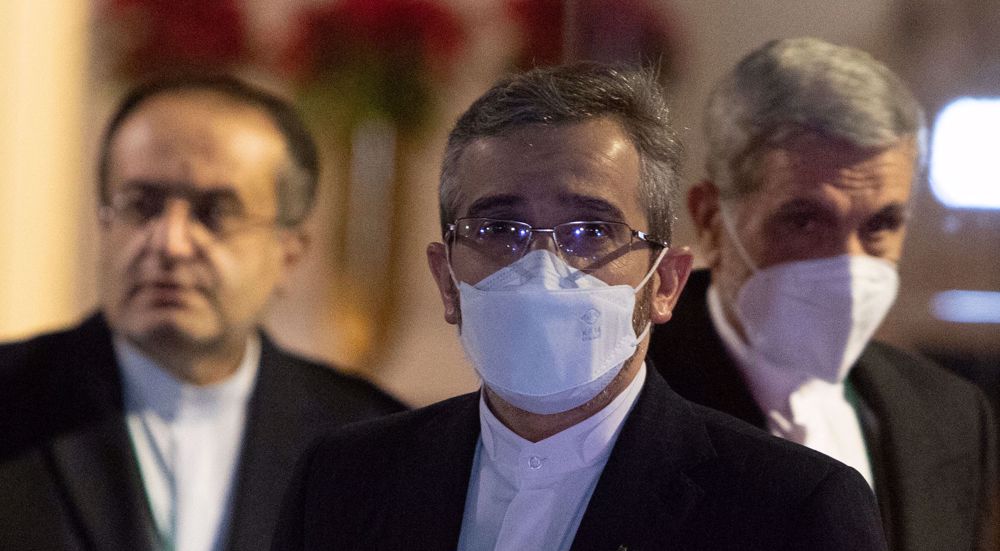
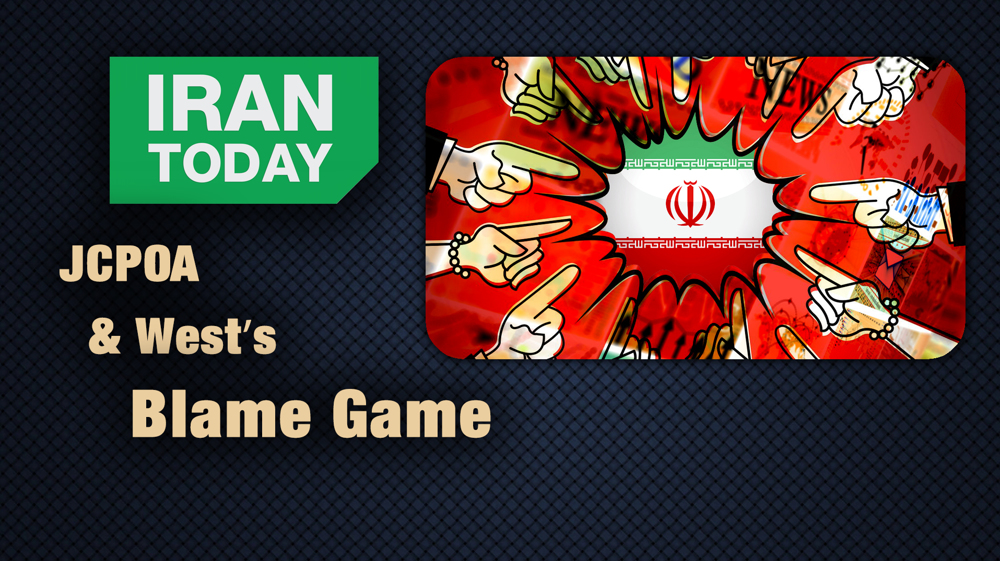
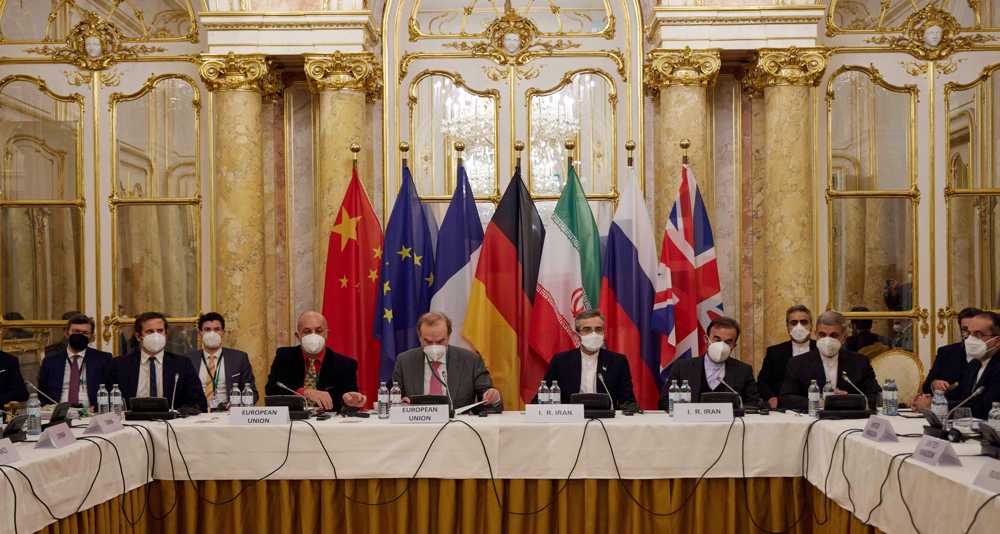
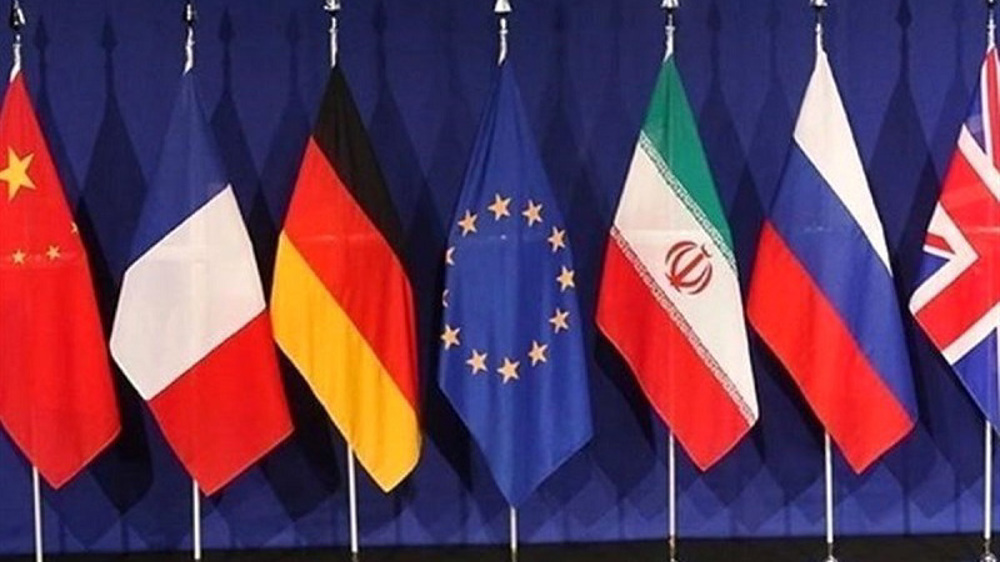
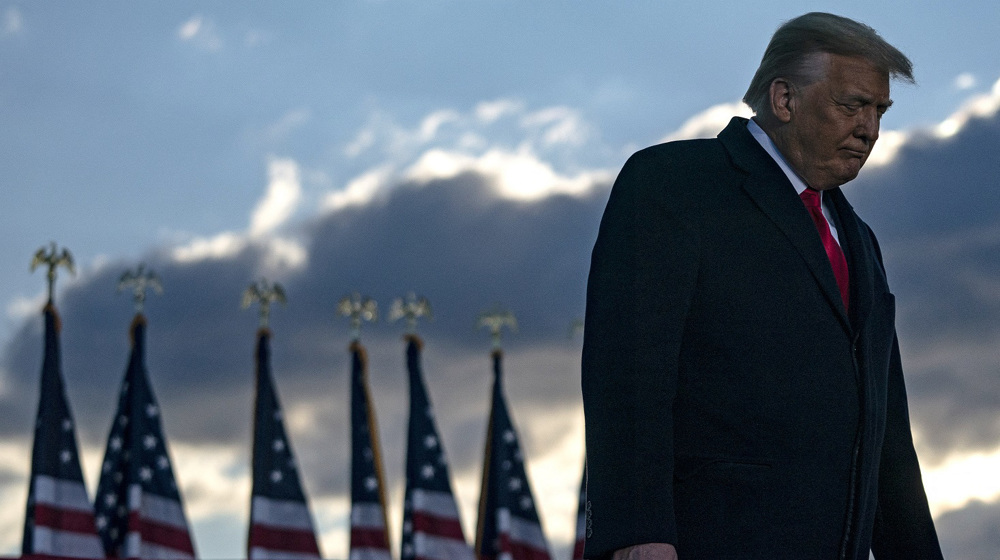
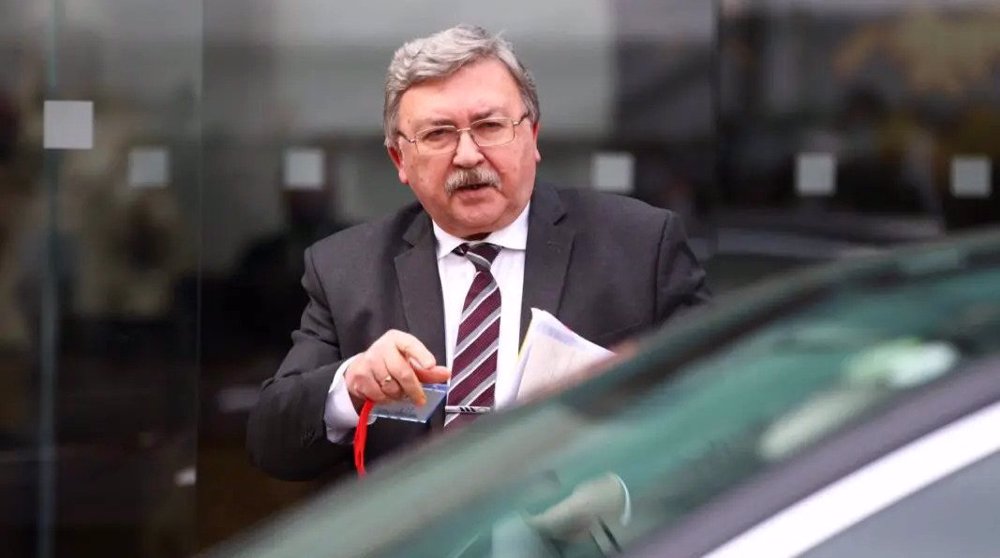
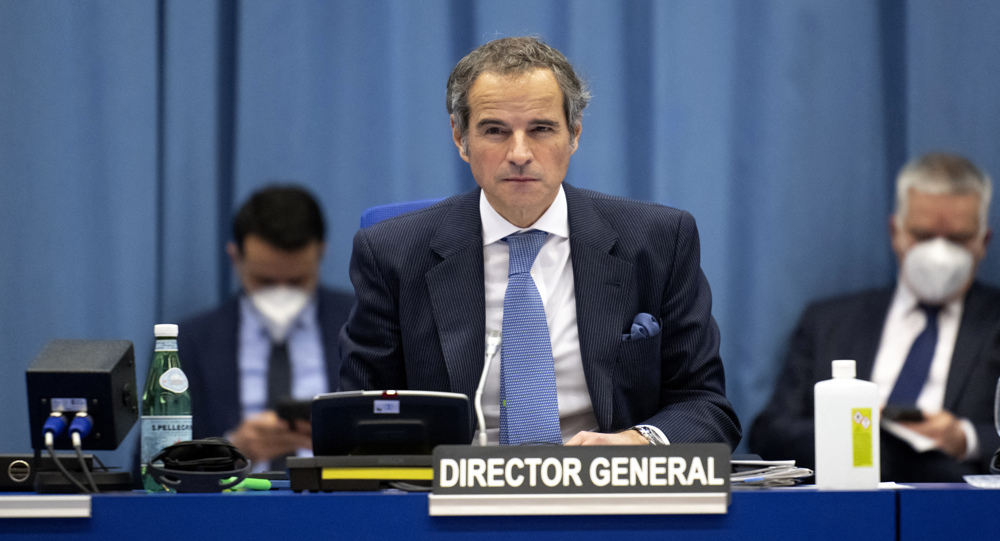
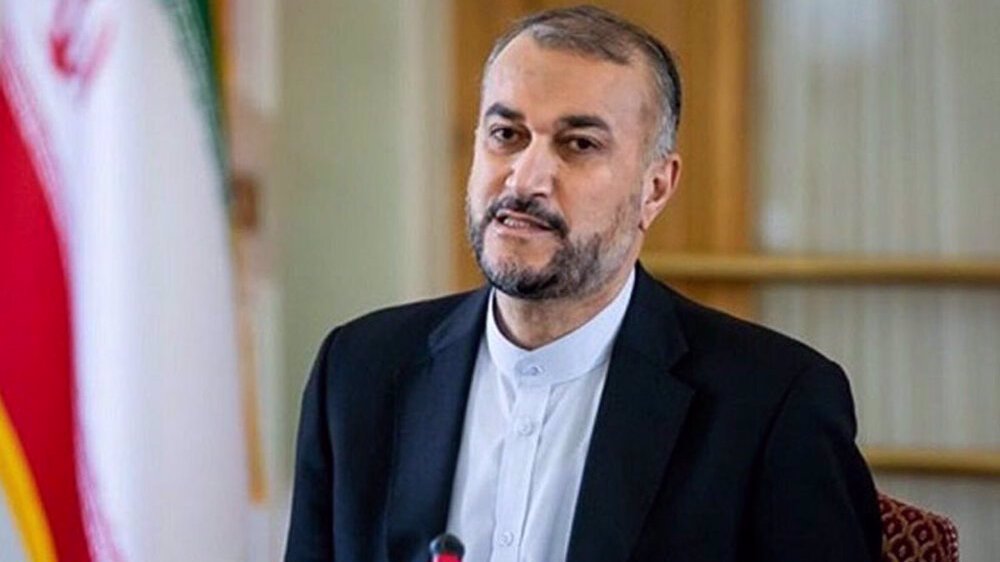

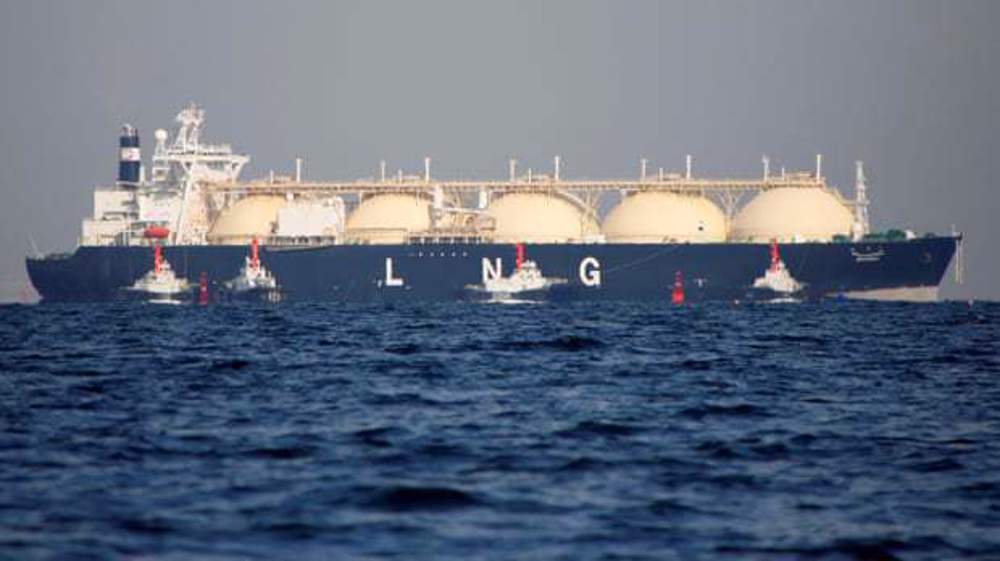
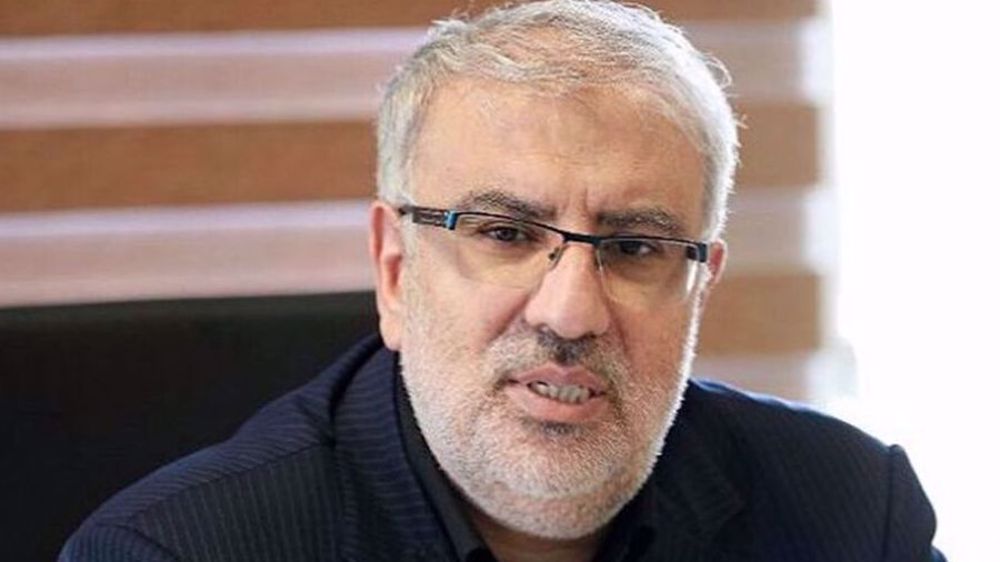
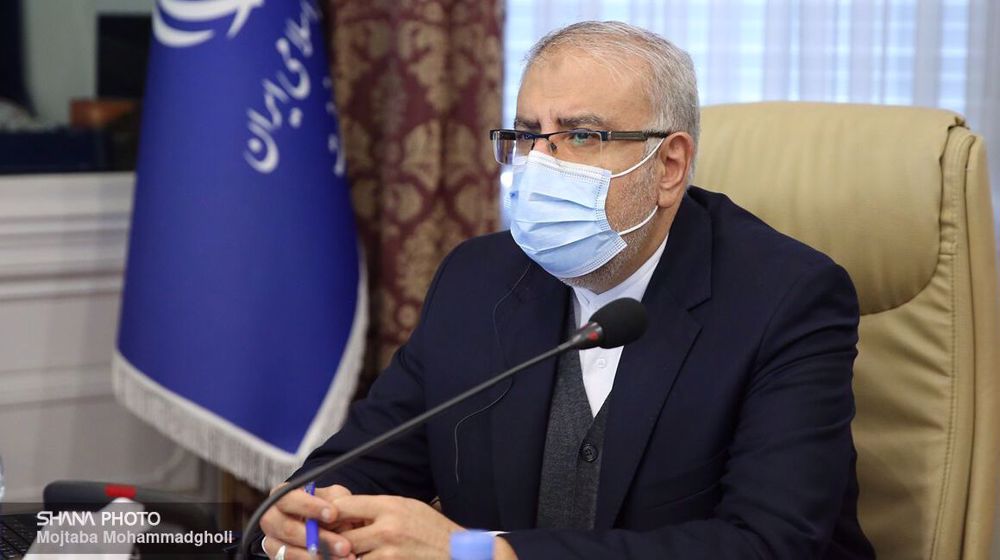
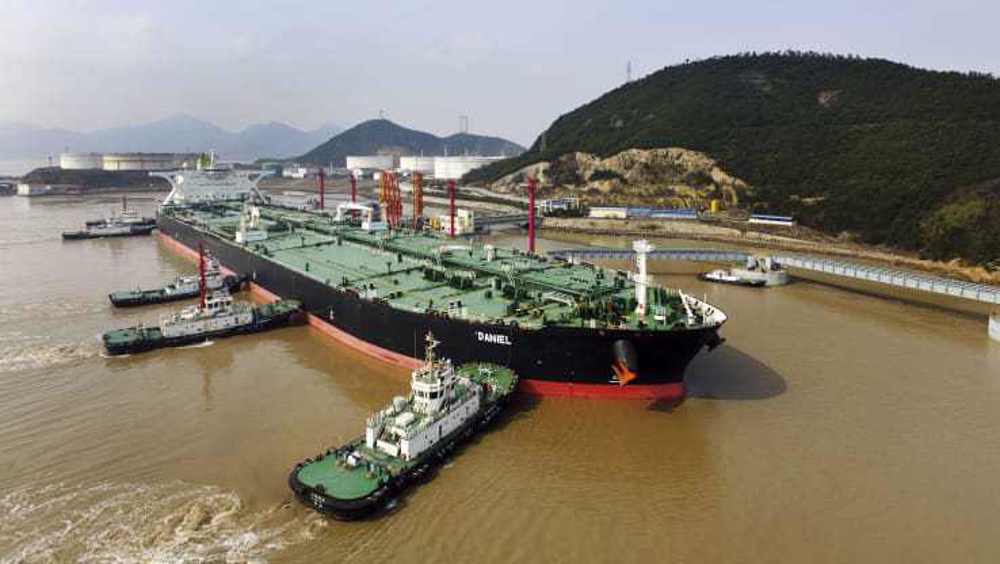
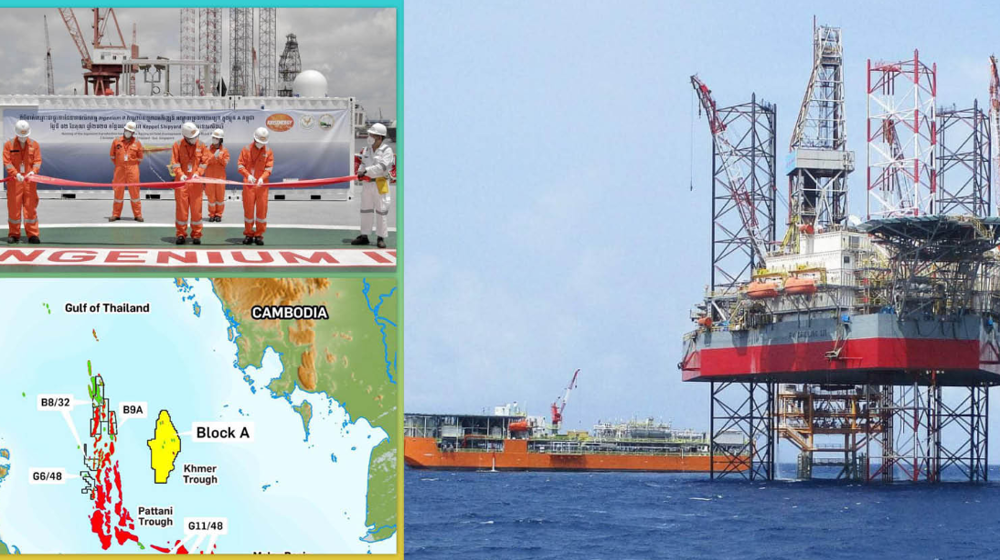

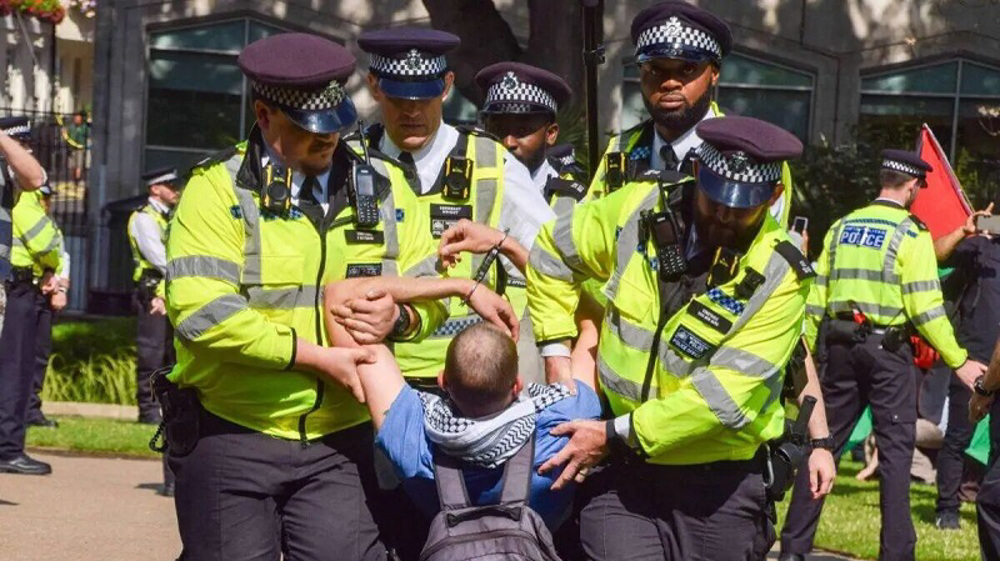
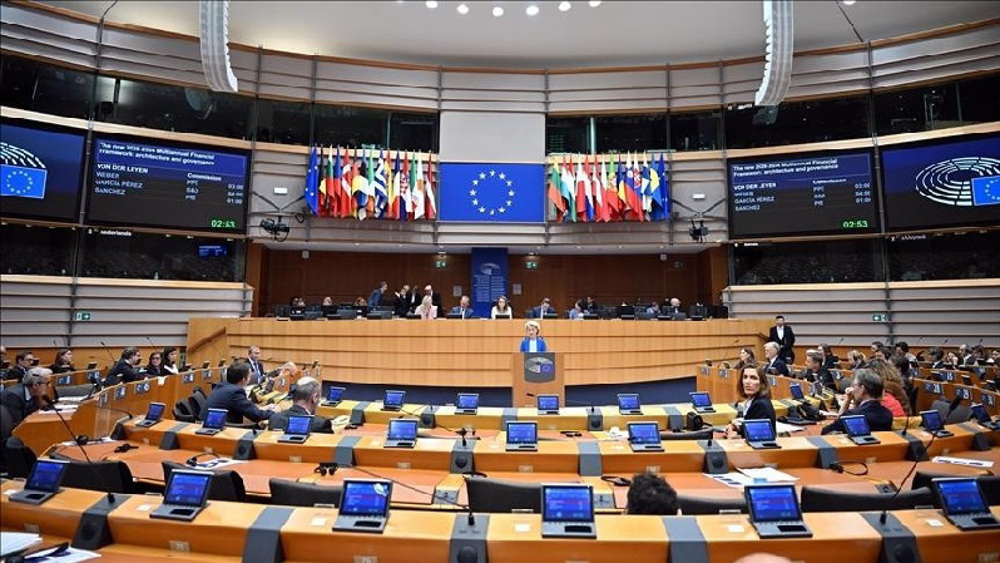



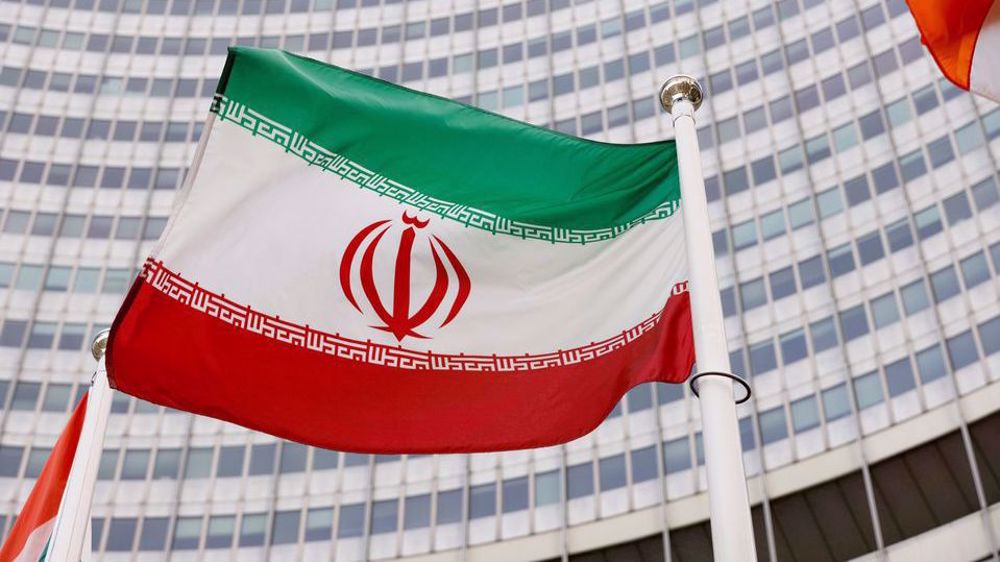
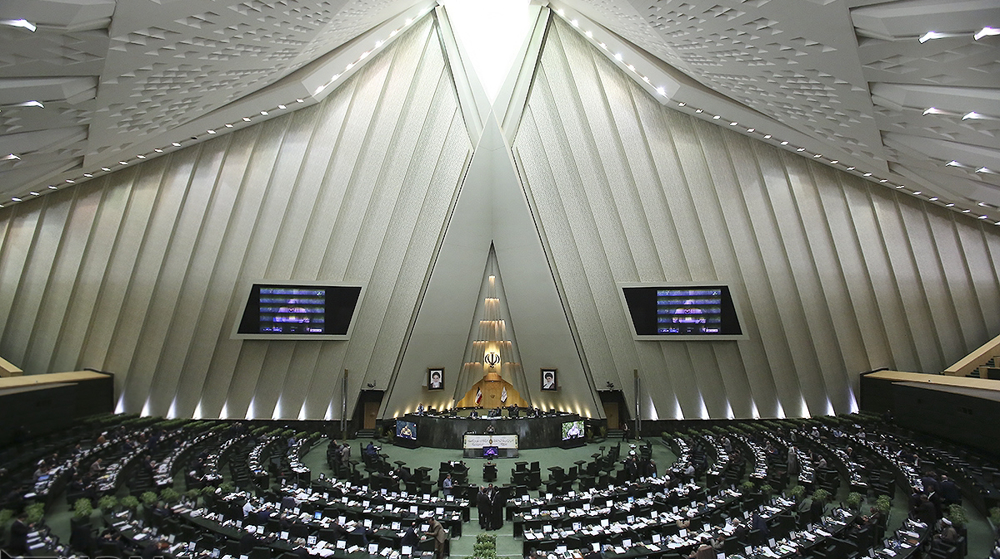
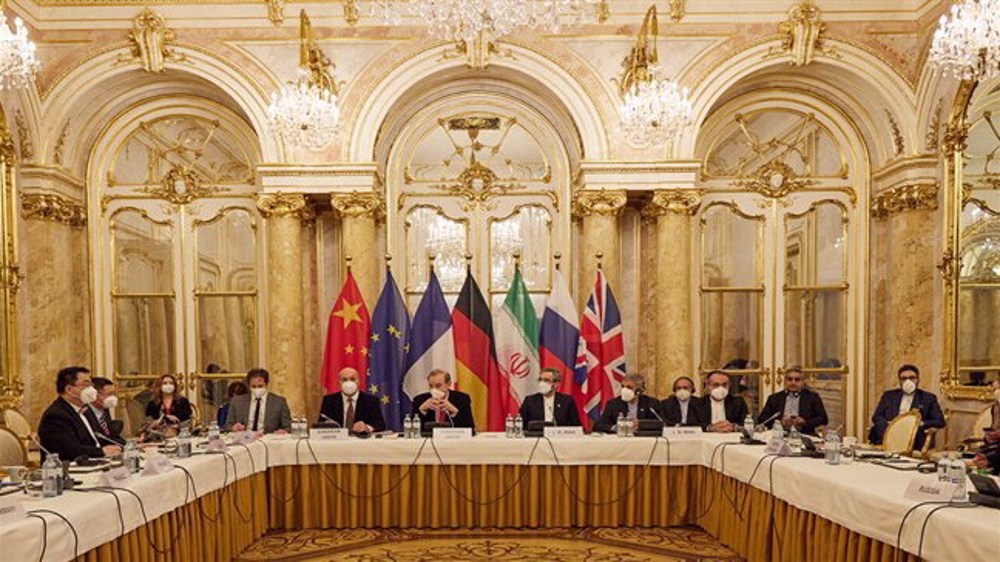
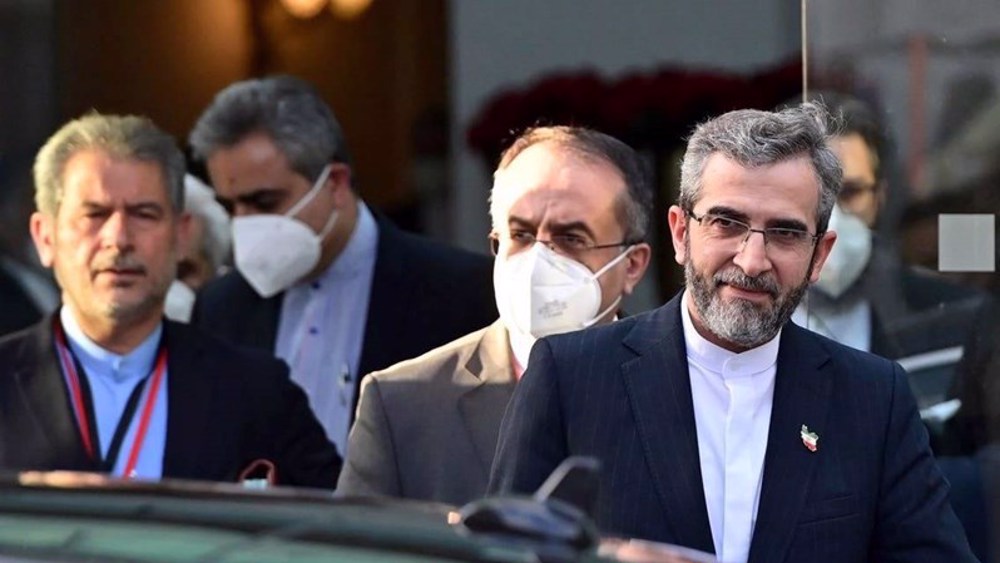
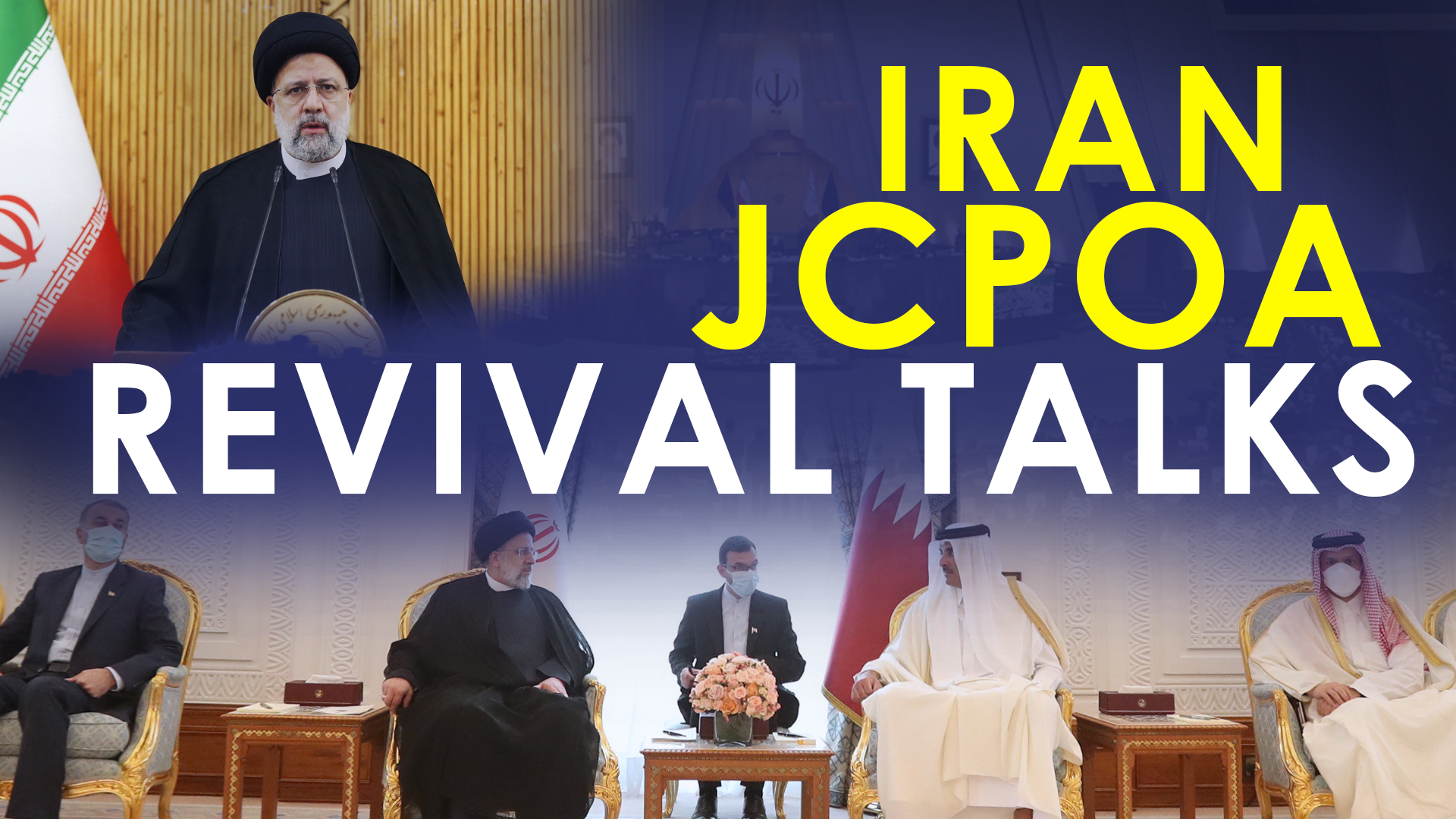
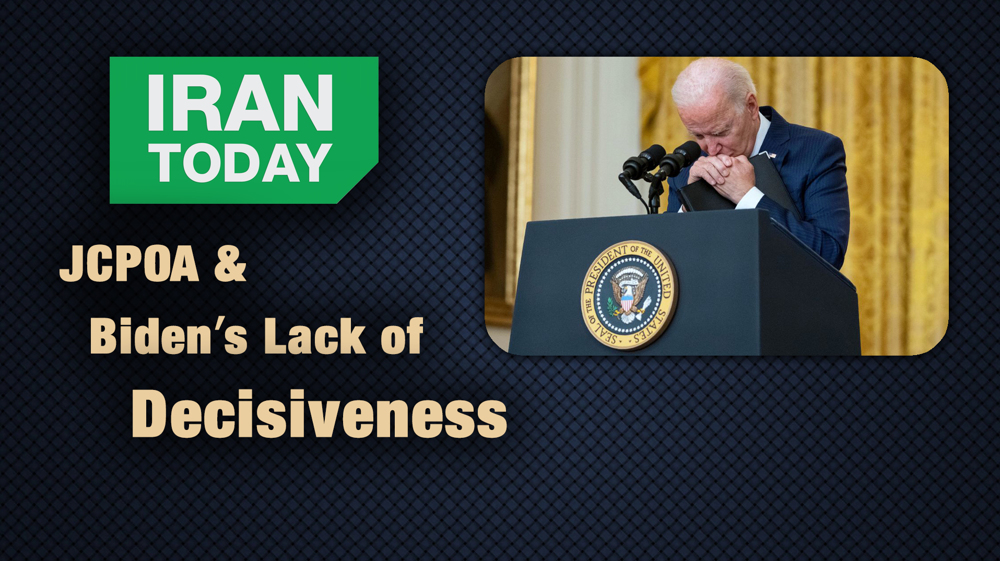
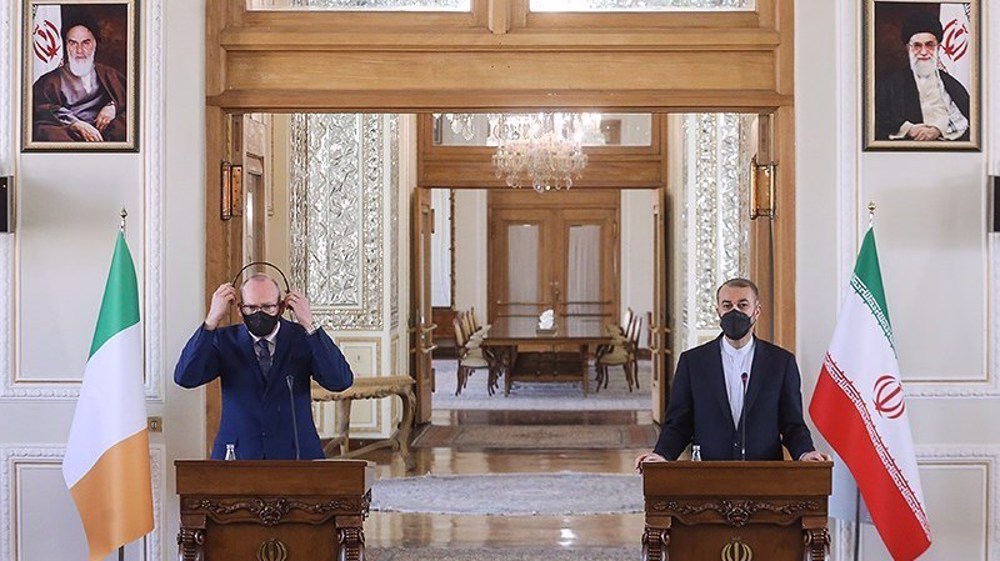

 This makes it easy to access the Press TV website
This makes it easy to access the Press TV website